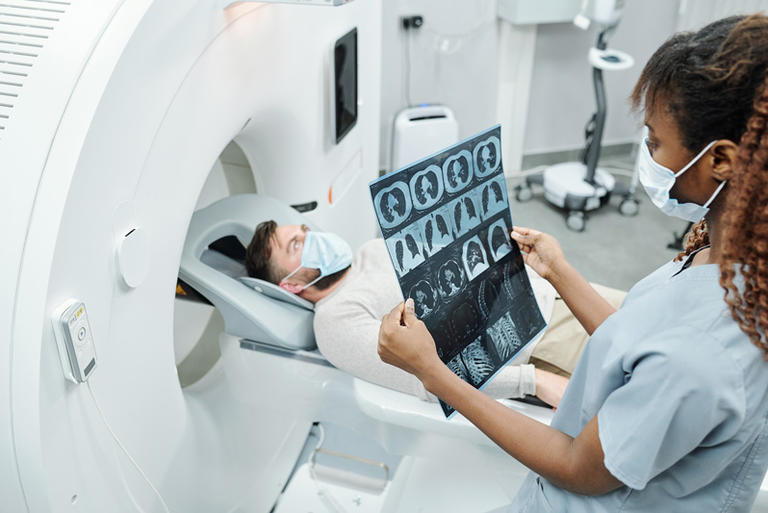If you're an aspiring physician, there's a good chance you're interested in a career in medicine because you want to positively impact the lives of your patients. With more than 120 medical specialties to choose from, which one will help you make the biggest impact?
The answer is that every specialty helps make a difference in the health of patients. However, if you’re looking to form long-term relationships that allow you to focus on the whole patient, a career as a primary care physician might be the right choice for you.
The role of a primary care physician is essential in the medical community. Doctors who choose this specialty are among the most in-demand physicians in the United States, according to Doximity’s U.S. Physician Employment Report 2019. Although medical students don’t need to select a specialty until residency, it’s good to ask the questions ‘What is a primary care physician?’ and ‘What does a primary care physician do?’ early in your training.
What Is A Primary Care Physician?
Primary care physicians treat patients over many years, serving as the medical team leader of patient care. In addition to preventive care, including annual checkups, blood tests, and immunizations, primary care doctors help diagnose and manage chronic and acute conditions. A primary care doctor is a patient’s go-to expert when health-related issues arise.
Services they provide include:
- Screen for common chronic conditions such as cancer, high blood pressure, and diabetes
- Monitor growth and development
- Conduct annual wellness checks, vaccinations, and physical examinations
- Work closely with patients on overall health and wellness
Primary care physicians also deliver care in various clinical settings, from outpatient offices to inpatient in hospitals, long-term care facilities, home care and community settings. They also provide healthy lifestyle promotion, disease prevention, health maintenance, counseling, patient education and weight management, among many other healthcare services.
What Does A Primary Care Physician Do?
According to the American Academy of Family Physicians Foundation, there are five main types of primary care doctors. The answer to the question of what does a primary care doctor do is that they provide wide-ranging care for a select population.
Family practitioners provide care throughout a person’s life, from birth through old age. They complete three years of residency covering full-spectrum care, including female reproductive health.
Internists care primarily for adults with a special focus on organs and the internal process. The primary difference between internists and family practitioners is that internists need additional training to treat children and female reproductive issues. Internists must complete a three year residency.
Pediatricians specialize in caring for children from birth through age 18 or early adulthood. They are experts on child health and development. They specialize in preventative care, treat diseases, and follow their patients carefully to ensure they are meeting physical, mental, and emotional milestones. Pediatricians must complete a three-year residency.
Obstetricians-Gynecologists specialize in women’s health, particularly during the child-bearing years. They have expertise in pregnancy, childbirth and treating conditions and disorders related to the reproductive system. It is a procedure-based specialty that requires both medical and surgical skills. The length of residency is four years.
Geriatricians specialize in the health needs of older people. Geriatricians are internists who have taken additional training to focus on the body's complexities as it ages. These primary care physicians manage chronic and acute conditions related to aging, including diabetes, osteoporosis, circulation issues and memory loss. This specialty typically requires a four-year residency.
Demand for Primary Care Doctors
Primary care physicians are in high demand and patients who regularly see their primary care physician have better health. Consider this:
- By 2033, the United States could see an estimated shortage of nearly 139,000 physicians, including shortfalls in primary and specialty care, according to a 2020 report by the Association of American Medical Colleges (AAMC). That includes a shortage of up to 55,200 primary care physicians.
- The most in-demand physicians are family medicine and internal medicine practitioners, according to Doximity’s U.S. Physician Employment Report 2019. Pediatricians and OB-GYNs also are among the top 10 most in-demand physicians.
- Studies have shown that states with a higher ratio of primary care physicians to people have better health and lower mortality rates. Patients who regularly see a primary care physician also have lower health costs than those without one. Every age group benefits from primary care doctors, from the youngest children to the most senior seniors.
The Benefits of Being a Primary Care Physician
Primary care physicians have a huge impact on the health and wellness of patients. Specifically, a 2019 case study published in the journal JAMA Internal Medicine found that mortality rates are lower in U.S. counties with more primary care providers. With an additional 10 primary care physicians per 100,000 people, the study showed a 51.5-day increase in life expectancy, the researchers reported.
- Other benefits of becoming a primary care physician include:
- There will always be a huge demand for primary care physicians.
- You'll play an important role in helping patients prevent illness as they age.
- Primary care physicians typically have a more predictable schedule than other specialties.
- You'll treat a diverse patient population with an unending variety of conditions and diseases.
Ready to Start on Your Path to Become a Primary Care Physician?
Are you ready to stop asking what is a primary care physician and start taking steps to become one? Ross University School of Medicine (RUSM) has a strong history of preparing medical students for a primary care physician career. In 2020, over 95% of RUSM graduates secured the residency of their choice, most with a focus on primary care medicine.
Learn more about the RUSM MD program and begin your application process.
Related Resources:



